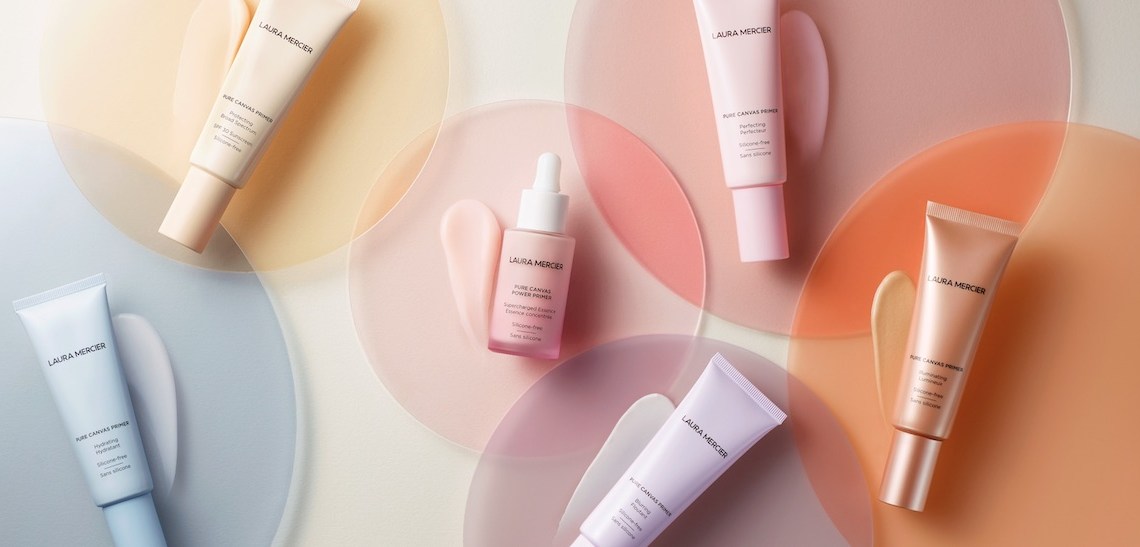This week, Glossy takes a look at private equity firm Advent International, including its acquisition of three Shiseido Americas brands and the exit of its bond-building hair-care brand Olaplex.
The beauty industry has a new power private equity player in town, which ultimately expands the lineup of buyers, sellers and growth opportunities in the market.
On August 25, Advent International and Shiseido Americas jointly announced that Advent would acquire heritage brands Laura Mercier, Buxom and BareMinerals. According to Reuters, Shiseido sold the brands for $700 million. On the heels of this news, Advent-owned Olaplex hair care filed its S-1 for an IPO on August 27, providing insight into Advent’s ability to develop global beauty brands. Olaplex declined to comment, as the brand is in a quiet period, according to a spokesperson.
Advent International is one of the largest PE firms in the world and has had a foothold in beauty since at least Jan. 2020 when it acquired Olaplex. However, it has mostly operated under the radar. From 2013-2015, Advent was also the majority owner of German-based beauty retailer Douglas. In the press release announcing the acquisition, Advent is described as a “hands-on” investor, having deployed $13.6 billion in more than 80 retail, consumer and leisure companies worldwide. With its acquisition of three major brands from the Shiseido Americas portfolio, Advent is now poised to be a bigger mover-and-shaker in beauty.
According to Olaplex’s S-1, under the ownership of Advent, Olaplex net sales increased from $148.2 million in 2019 to $282.3 million in 2020, representing a 90% increase. Olaplex’s own DTC e-commerce represents 27% of its 2020 total net sales. Yet, the brand’s profitability decreased by 36% from $60.9 million in 2019 to $39.3 million in 2020. That was primarily due to interest expense on debt incurred in January 2020 upon the Advent acquisition. Overall, Olaplex has total debts amounting to approximately $767 million and faces mounting competition from bond-building challenger brands. Recently, it launched an app in February and debuted its first back-bar product in seven years in August. In its S-1, Olaplex also touted its diversity and sustainability impacts, noting that 41% of its employees identify as non-white and that it has focused on limiting the use of secondary packaging.
As for Shiseido’s brands, Tricia Glynn, Advent International managing director, said, “[Corporate carveouts] are a complicated transaction, but one we’re very comfortable with. And we know that bringing focus to these businesses in a smaller setting can create a lot of value.”
Laura Mercier, Buxom and BareMinerals will be bundled together under AI Beauty Holdings, Ltd., a new company formed by Advent International. Glynn said that, following the initial setup of AI Beauty Holdings, Advent will look to additional acquisitions.
Ad position: web_incontent_pos1
Under AI Beauty Holdings, product innovation and customer communications will stay separate for each brand. But teams across digital insights, market expansion, and relationships with suppliers and retail partners will be shared among all three, said Glynn. She added that all three brands’ initial areas of focus will be product innovation, increasingly sustainable packaging and digital penetration, including e-commerce and communications.
Advent reportedly acquired Laura Mercier, Buxom and BareMinerals for $350 million in cash and $350 million in a seller’s note payable seven years after the deal closes. Shiseido previously acquired Gurwitch Products LLC for an estimated $260 million in 2016, when it took over Gurwitch-owned Laura Mercier and skin-care brand RéVive. RéVive was then sold to private equity firm Tengram Capital in 2017. Advent hired Janet Gurwitch as an operating partner in May 2020. In 2010, Shiseido acquired for $1.7 billion Bare Escentuals, which included BareMinerals, RareMinerals, Buxom and MD Formulations. The sale of the three brands together for $700 million marks a significant writedown.
“Compared to some of the other larger beauty conglomerates, Shiseido always seemed more willing to divest than the others. You rarely see Estée Lauder Companies or L’Oréal divesting brands,” said Rich Gersten, former managing partner of Tengram Capital and current co-founder and managing partner of True Beauty Ventures. “I was surprised by this one because of the sheer scale of it and the fact that it basically consists of Shiseido’s entire makeup portfolio, except for Nars. It was an eye-opening transaction.”
With Shiseido’s cosmetics portfolio shrinking, Shiseido is repositioning itself as a global premium skin beauty company. Shiseido’s current portfolio includes its namesake brand, as well as Clé de Peau, Nars and Drunk Elephant, which it acquired in 2019 for $845 million. Over the last 12 months, Shiseido Group has sold off its mass-market portfolio and severed ties with Dolce & Gabbana cosmetics brand, while also emphasizing the group’s digital acceleration across its business. Shiseido hired Angelica Munson as global chief digital officer in January, and the company has a goal of reaching 35% e-commerce penetration by 2023. In May, Shiseido created a joint venture with Accenture called Shiseido Interactive Beauty Company to provide all brands digital marketing and IT-related services.
On an individual brand level, Nars has invested in audio opportunities and virtual reality storefronts, and it relaunched its hero product, the Pure Radiant Tinted Moisturizer, in April. For its part, Clé de Peau expanded to Amazon Luxury in Oct. 2020 and began hosting shoppable livestream events on its own site.
Ad position: web_incontent_pos2
“As Shiseido continues to execute against our WIN 2023 and Beyond strategy, we are confident in the performance and continued growth potential of our global prestige portfolio,” said Masahiko Uotani, Shiseido Group president and CEO. “We remain focused on making strategic investments across the portfolio and exploring other potential opportunities that fit into our premium skin beauty and global growth objectives.”
Inside our coverage:
Why every beauty brand now sells merch.
Hyram Yarbro chats about social media habits.
The Nue Co. expands to Sephora.
Beautycounter and Klarna link up for livestream shopping.
What we’re reading:
An ode to Black hair braiding.
Beautycon is officially out of business.
Jennifer Aniston finally joins in on the celebrity beauty movement.




